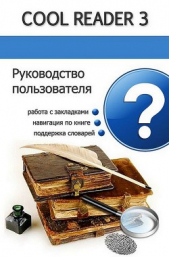Словарь американских идиом: 8000 единиц

Словарь американских идиом: 8000 единиц читать книгу онлайн
Это обновленное и дополненное издание, содержащее более 8000 идиоматическихслов и выражений, причем каждое из которых снабжено грамматическим объяснениеми практическим примером. Словарь содержит лексемные идиомы, фразеологическиеединицы и поговорки, имеющие особенное значение. В нем приведены наиболееупотребительные выражения только американского английского языка. Этот словарь?—?идеальное пособие для студентов, часто разъезжающих бизнесменов и простопутешественников.
Внимание! Книга может содержать контент только для совершеннолетних. Для несовершеннолетних чтение данного контента СТРОГО ЗАПРЕЩЕНО! Если в книге присутствует наличие пропаганды ЛГБТ и другого, запрещенного контента - просьба написать на почту [email protected] для удаления материала
[see how the land lies]{v. phr.}, {informal} To reconnoiter; investigate. •/Before going there in person to ask for a job, you had better see how the land lies and who does what./ Compare: CASE THE JOINT.
[seeing is believing] Seeing something is good proof. •/Bill told Joe he had passed his test, but Joe said, "Seeing is believing."/
[see into]{v.} To know or understand the real nature or meaning of. •/Suddenly the teacher saw into Linda’s strange actions./
[see off]{v.} To go to say or wave goodbye to. •/His brother went to the train with him to see him off./ •/When Marsha flew to Paris, Flo saw her off at the airport./
[see one home]{v. phr.} To walk a person home. •/"Let me see you home, dear," Nick said to Jenny at the end of the party./
[see one’s way clear]{v. phr.} To know no reason for not doing something; feel that you are free. •/John finally saw his way clear to help his friends./ •/Mary had to do her homework and help her mother before she could see her way clear to go to the movies with Jane./
[see out]{v.} 1. To go with to an outer door. •/A polite man sees his company out after a party./ 2. To stay with and finish; not quit. •/Pete’s assignment was hard but he saw it out to the end./
[see reason]{v. phr.} To think or act sensibly, especially after realizing what the facts are on a certain matter and accepting advice about it. •/He finally saw reason and reshaped his sales strategy by lowering the prices as his older brother had suggested./
[see red]{v. phr.}, {informal} To become very angry. •/Whenever anyone teased John about his weight, he saw red. /
[see service]{v. phr.} 1. To be used over a considerable period of time. •/This old camera of mine has already seen six years of service./ 2. To serve in a military sense. •/Colonel Hutchins has seen service in World War II, Korea, Vietnam, and the Persian Gulf./
[see stars]{v. phr.}, {informal} To imagine you are seeing stars as a result of being hit on the head. •/When Ted was hit on the head by the ball, he saw stars./ •/The boxer’s head hit the floor, making him see stars./
[see the beat] See: HEAR THE BEAT.
[see the color of one’s money]{v. phr.}, {informal} To know that you have money to spend. •/The realtor would not show us a house until he saw the color of our money./ •/Before I show you the diamond, let me see the color of your money./
[see the last of]{v. phr.} To say good-bye to someone or something; get rid of something. •/We were glad to see the last of the winter./
[see the light]{v. phr.}, {informal} To understand or agree, often suddenly; accept another’s explanation or decision. •/I did not approve of his action, but he explained his reason and then I saw the light./ •/Bill wanted Harry to help him, but Harry wasn’t in the mood until Bill offered to pay him. Then Harry saw the light./ •/Mary thought it was fun to date older boys but when they started drinking, she saw the light./
[see the light at the end of the tunnel]{v. phr.}, {informal} To anticipate the happy resolution of a prolonged period of problems. •/We’ve been paying on our house mortgage for many years, but at long last we can see the light at the end of the tunnel./
[see the light of day]{v. phr.} To be born or begun. •/The children visited the old house where their great-grandfather first saw the light of day./ •/The party was a failure, and Mathilda wished her plan had never seen the light of day./
[see the sights] See: SIGHTSEE.
[see things]{v. phr.}, {informal} To imagine sights which are not real; think you see what is not there. •/I had not seen him for twenty years and when we met on the street I thought I was seeing things./ •/She woke her husband to tell him she had seen a face at the window, but he told her she was seeing things./
[see through]{v.} 1. To understand the real meaning of or reason for; realize the falseness of. •/Mother saw through Johnny’s excuses not to go to bed on Christmas Eve. She knew he wanted to stay up to see Santa Claus./ •/The teacher saw through the boy’s story of having to help at home./ 2. To do (something) until finished; stay with until the end. •/Once Charles started a job, he saw it through till it was finished./ 3. To help and encourage (a person) through trouble or difficulty. •/Mrs. Miller saw Jane through her sickness./ •/When Mr. and Mrs. Brown lost their little girl, their friends saw them through with help and sympathy./ •/His business was about to fail, but his banker saw him through./ 4. To be enough for; last. •/This money will see us through the week./ •/Here is a long report to type. Do you have enough paper to see you through?/ Compare: TIDE OVER.
[see to] also [look to] {v.} To attend to; take care of; do whatever needs to be done about. •/While Donna bought the theatre tickets, I saw to the parking of the car./ Compare: SEE ABOUT.
[see to it]{v. phr.} To take care; take the responsibility; make sure. — Usually used with a noun clause. •/We saw to it that the child was fed and bathed./
[see with rose-colored glasses] See: LOOK AT THE WORLD THROUGH ROSE-COLORED GLASSES.
[seed money]{n. phr.} A small grant or donation for others to be able to start a new venture. •/All you need is some seed money and you can set up your own desk-top publishing firm./
[seize on]{v.} To make use of (a happening or idea.) •/Bob seized on the rain as an excuse for missing school./
[seize on] or [upon] {v. phr.} To latch onto. •/Whenever Herb is in a romantic mood, Irene seizes on it and starts talking about marriage, which is not what Herb had in mind./
[seize the opportunity]{v. phr.} To exploit a chance. •/His wealthy uncle offered to send him to Harvard and he wisely seized the opportunity./
[self-conscious]{adj.} Embarrassed; shy. •/Edith has a freckled face and sometimes she is very self-conscious about it./
[self-made]{adj.} Having achieved wealth, fame, and success on one’s own without outside help. •/John D. Rockefeller is one of the most famous self-made men in America./
[self-possessed]{adj.} Confident; sure of one self. •/Before he made his first million, he used to be shy, but afterwards he became very self-possessed./
[self-seeking]{adj.} Given to egotism and self-aggrandizement. •/Al is the most self-seeking person I’ve ever met, he is not fun to be around./
[sell down the river]{v. phr.} To give harmful information about someone or something to one’s enemies; betray. •/The traitor sold his country down the river to the enemy army./ •/The criminal told the hiding place of his companions and sold them down the river./ Compare: SELL OUT(2).
[sell off]{v. phr.} To liquidate one’s holdings of certain set items. •/The retired professor had to sell off his rare butterfly collection to meet his health expenses./
[sell one a bill of goods]{v. phr.} To persuade another to acquire something useless; defraud. •/We were sure sold a bill of goods when Alfred persuaded us to buy his custom-built car for which replacement parts weren’t available anywhere./

























